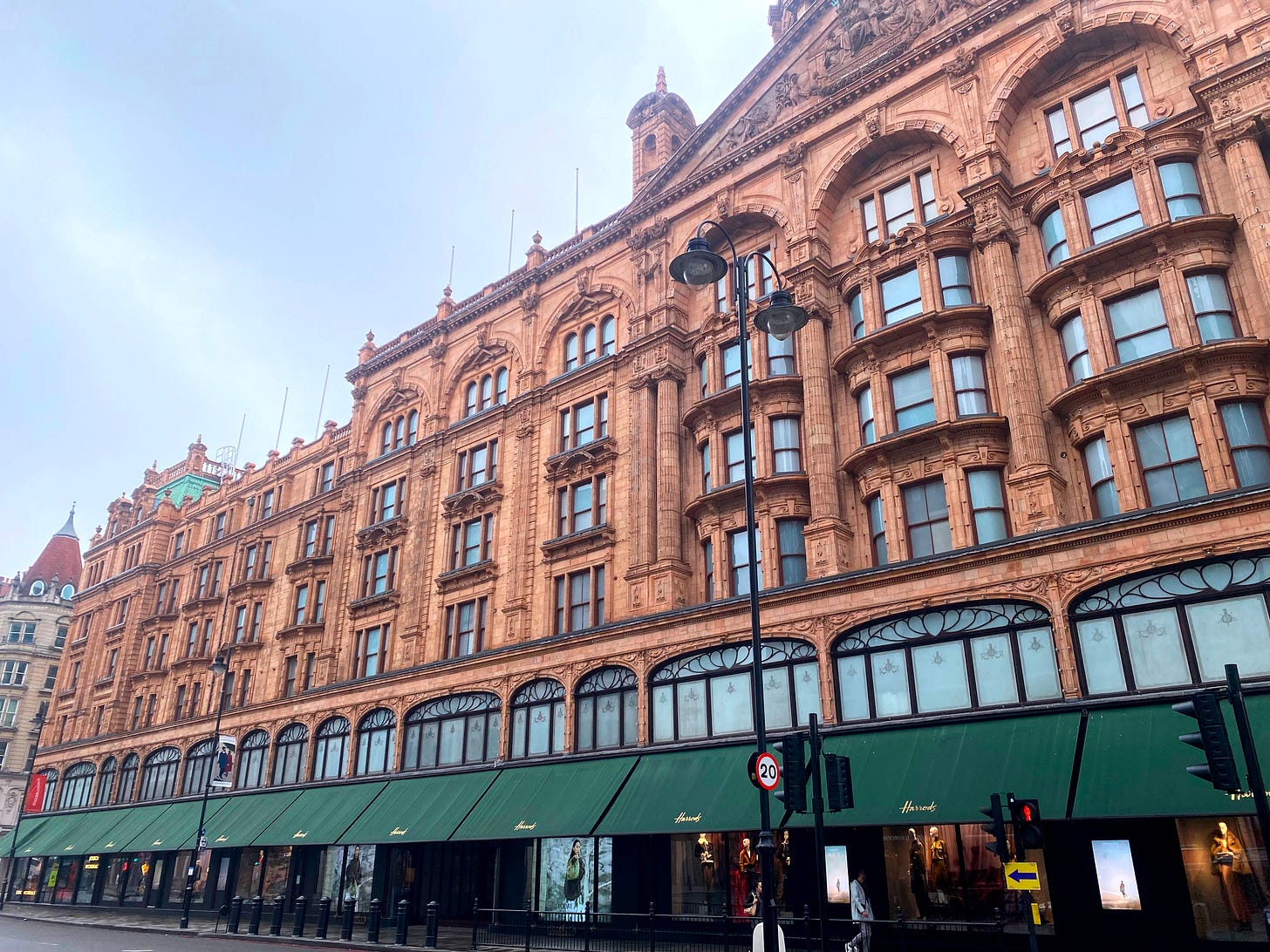Harrods Scandal: Culture, power and institutional accountability
Power Dynamics, Institutional Failures and Corporate Accountability in the Harrods Scandal
Harrods, a name synonymous with luxury and prestige, is now embroiled in a disturbing scandal—sexual abuse allegations against its former owner, Mohammad Al-Fayed. This case is not isolated, as similar scandals involving influential individuals have emerged across various industries and organisations. Legal teams working on the Al-Fayed case have drawn comparisons with other high-profile cases, such as Harvey Weinstein, noting the common threads of power abuse and institutional failures.
These scandals raise critical issues about how organisational culture, power dynamics, and institutional accountability can contribute to, or even perpetuate, abusive behaviour. Below are three key facets of the problem highlighted by the media coverage of the allegations against Al-Fayed and Harrods. Awareness and action on these fronts are essential for all organisations, regardless of size or industry.
1. Power Dynamics and Workplace Abuse
Power dynamics play a crucial role in abuse cases involving influential figures like Mohammad Al-Fayed and Harvey Weinstein. These individuals leveraged their positions of authority to exploit those lower in the organisational hierarchy. One of Al-Fayed's alleged victims revealed how he threatened that she would “never work in London again” if she reported the assault.
This kind of power imbalance fosters environments where victims feel powerless to speak out, especially when the organisational culture normalises misconduct. In the case of Harrods, inadequate reporting mechanisms and failure to address complaints compounded the problem, making it difficult for victims to find a safe way to voice their concerns.
This combination of unchecked power, permissive culture, and systemic failures allowed abuse to persist. The case highlights the urgent need for organisations to implement robust safeguards and promote a culture of accountability.
2. Brand Image and Institutional Denial
A common theme in high-profile scandals is the prioritisation of brand image over addressing misconduct, even when criminal behaviour may be involved. Institutions often resort to institutional denial and image control strategies to protect their reputation. This includes minimising the association between the individual and the organisation, controlling the narrative, or asserting that the misconduct was the act of a lone perpetrator in complete isolation.
In the case of Harrods, there have been efforts to distance the brand from the allegations against its former owner, but such efforts often ring hollow. Given the close ties between influential leaders and the organisations they run, these denials can appear disingenuous.
Effective crisis management requires transparency, accountability, and a commitment to genuine change. Organisations must acknowledge their role in allowing such behaviour to occur—whether through their corporate culture, power dynamics, or failure to address misconduct allegations. Settling claims behind closed doors can obscure transparency, hinder institutional learning, and prevent justice from being served.
3. Organisational Infrastructure Enabling Abuse
Predatory individuals often exploit their organisation's infrastructure to find and manipulate victims. In some cases, organisations may be unaware of what’s happening due to inadequate security measures or lack of policies and procedures.
However, in the worst scenarios, organisations may be complicit. Allegations against Al-Fayed suggest that Harrods’ recruitment processes were used as a grooming mechanism, with staff members facilitating the exploitation of young women. There are also accusations of inappropriate medical examinations being framed as work benefits, violating employees' confidentiality and rights.
This case has been described by one of the legal team representing the complainants as “possibly the worst case of corporate sexual exploitation of young women the world has ever seen.” The allegations underscore how deeply ingrained misconduct can become within an organisation when safeguards are lacking or ignored.
Key Takeaways for All Organisations
While the allegations against Mohammad Al-Fayed and Harrods are extreme, they offer critical lessons for organisations in all sectors. Here are the key takeaways:
Culture: A proactive stance against misconduct is essential. Organisations must foster a culture where unethical behaviour is not tolerated.
Systems: Effective systems for reporting and addressing concerns should be in place, ensuring that victims can come forward without fear of retaliation.
Transparency: Being open and transparent about misconduct, even when it conflicts with brand identity, is vital to maintaining trust with employees, customers and other stakeholders.
Power Imbalance: Power should never go unchecked. Strong checks and balances are necessary to prevent abuse.
Training and Awareness: Employees at all levels should be trained to recognise concerning behaviour and know how to challenge it appropriately.
The Harrods scandal, like other high-profile cases, serves as a reminder that organisational accountability and ethical leadership are non-negotiable. By prioritising a culture of transparency, addressing power imbalances, and ensuring strong reporting mechanisms, organisations can prevent abusive behaviour and maintain the trust of their stakeholders.






